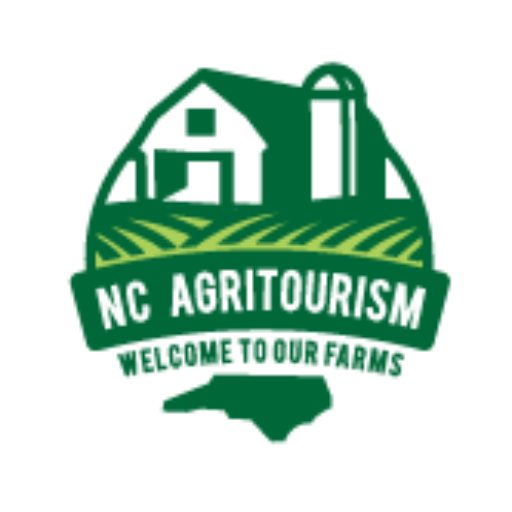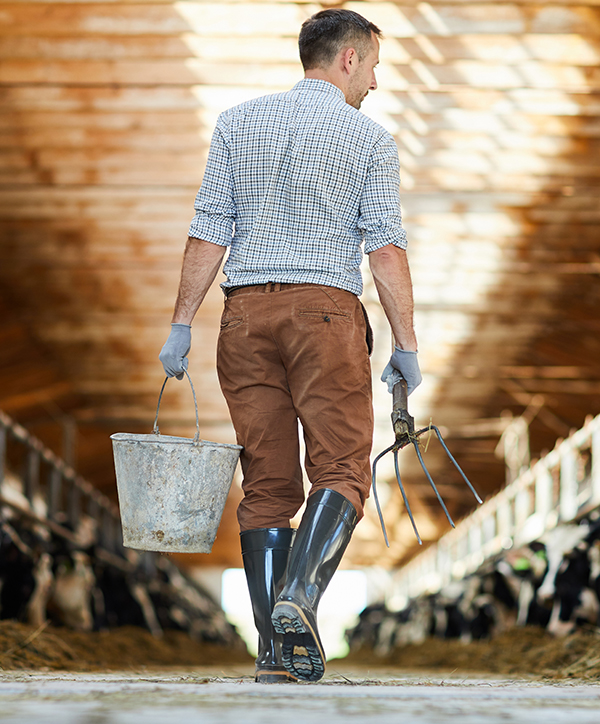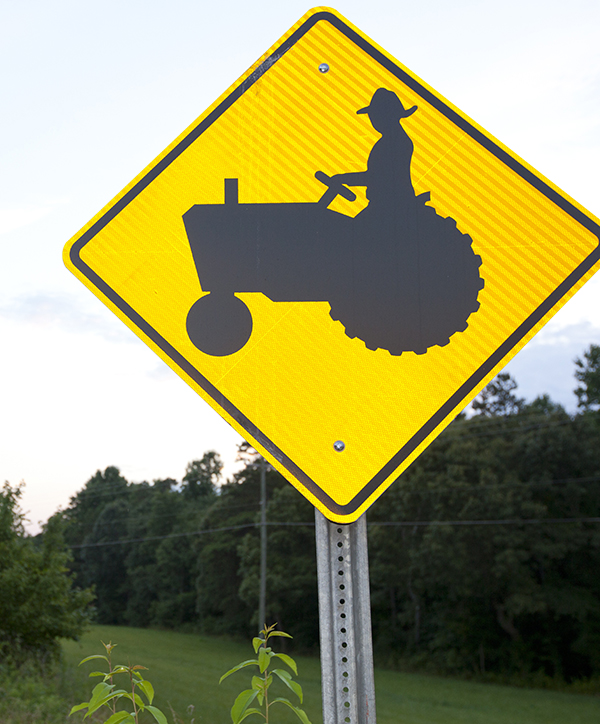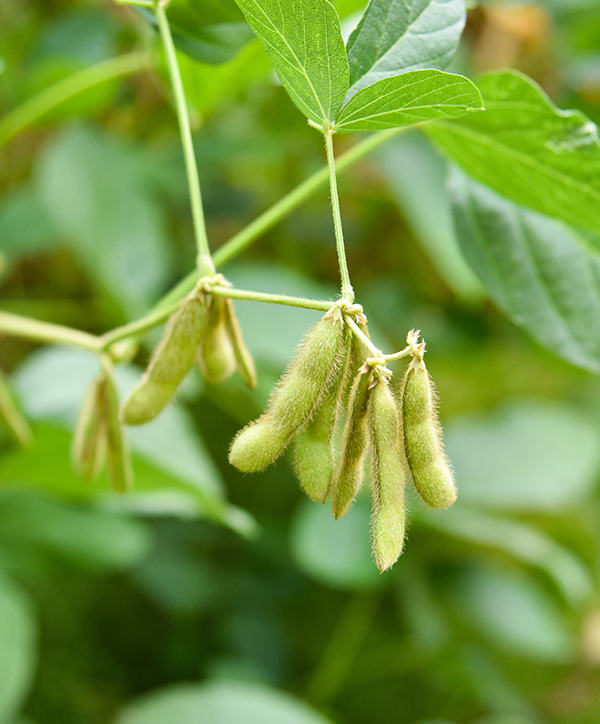Resources
Our Resources
Agriculture is North Carolina’s top industry at $92.7 billion employing 772,000 individuals. North Carolina is a leader in the Agritourism industry as well. The following links will help you with your research as your farm explores the benefits of adding Agritourism activities to the farm.
General Resources for Farms Welcoming Visitors
Agritourism Statute in North Carolina
North Carolina Law defines agritourism activities and outlines liability associated with agritourism in North Carolina. The liability warning for farms engaged in Agritourism activities is a sign that elevates awareness that farms are dangerous places. Farms are advised to gain specific insurance based on the activities they plan to host as posting the warning is not a replacement for appropriate insurance. (See the WARNING within the NC Agritourism Networking Association section below.)
Liability Warning Signs
NC-ANA encourages you to have Liability Warning Signs visible for each agritourism activity. Post a minimum of two signs on your farm:
- At the entrance
- At each activity where people gather
Liability signs are available for purchase through the NC Agritourism Networking Association.
|
NC General Statutes – Chapter 99E Article 1 2 (a) Except as provided in subsection (b) of this section, an equine activity sponsor, an equine professional, or any other person engaged in an equine activity, including a
|
https://www.ncleg.net/
|
GENERAL ASSEMBLY OF NORTH CAROLINA. SESSION 2005 . SESSION LAW 2005-236. HOUSE BILL 329 . AN ACT to limit liability arising from certain agritourism activities.
|
https://www.ncleg.net/
|
NC General Statutes – Chapter 99E 4 d. Rides, trips, shows, clinics, hunts, parades, games, exhibitions, or other activities of any kind that are sponsored by a farm animal activity
|
N.C. Farm Act of 2017-2018
Legislation makes updates to various agricultural laws. Please review legislation on Bona Fide Farm statute. Team with your county officials in planning, zoning and tax offices to best determine how the farm operations meet expectations locally.
Bona Fide Farm Statute
For purposes of determining whether a property is being used for bona fide farm purposes, any of the following shall constitute sufficient evidence that the property is being used for bona fide farm purposes:
- A farm sales tax exemption certificate issued by the Department of Revenue
- A copy of the property tax listing showing that the property is eligible for participation in the present use value program pursuant to G.S.105-277.3
- A copy of the farm owner’s or operator’s Schedule F from the owner’s or operator’s most recent federal income tax return
- A forest management plan
Present-Use Valuation Program
In 1974, the General Assembly enacted a voluntary program that allows certain agricultural land, horticultural land, and forestland to be assessed at its present-use value. The N.C. Department of Revenue provides a document to better understand the program.
N.C. Ag Law
N.C. Century Farm Family Program
Marketing and Business Development Resources
Agritourism Webinar
For those in agriculture, tourism and economic development just introduced to the industry, learn more about Agritourism best practices, critical success factors and marketing opportunities to include an overview of the Visit NC Farms App Project.
Business Planning Tools
Tools listed here have been helpful to farms as they diversify to include Agritourism:
N.C. Ag Law
Consider membership and tap many benefits. Farms with an interest in Agritourism finds the Ag in the Classroom program especially helpful. Learn more below.
Safe Agritourism
Visitor and employee safety on the farm is essential to the farm’s vitality and everyone’s wellness. Safety laws are changing frequently, so be sure to keep up with the N.C. Department of Labor standards and use the resources for farms offering Agritourism activities below:
Convention and Visitors Bureau
Contact your county’s Convention and Visitors Bureau to list a farm as an Attraction on their website or to list a special event on their website.
Visit NC Farms App Project
The Visit NC Farms app has the potential to connect millions of visitors and residents to North Carolina farms and to local food in your community. The app promotes farms and fisheries, farmers markets, local food and drink, farm lodging, shop local for value added products, farm-to-table restaurants, tours and trails and special events. Making the at-your-fingertips connections in your community and being a part of a statewide collective, get showcased how, where and when agribusiness happens. Learn how to get your community involved:
Highway Signage Programs through the N.C. Department of Transportation
Agriculture Tourism Directional Signage
The agricultural tourism facility shall be open for customers and tourists ten (10) full months per year, and at least four days per week to total a minimum of 32 hours per week.
Logos Signage
Tourist Oriented Directional Signage
Google Business
Get on the map. Farms benefit by verifying their business listing on Google.
Insurance Resources
Insurance Resources
The following list of insurance resources is available for your assistance in finding Agritourism liability insurance. The offering of this list in no way endorses these agents by the NC Agritourism Networking Association or the N.C. Department of Agriculture and Consumers Services, nor stipulates or suggests that they can provide the type of insurance needed at a cost you can afford.
Additionally, most agents work within 100 miles of their home office, and sometimes not that far. When searching for an agent, start with those closest to your home. Be up front with them – tell them if you have called other agents. Often agents cooperate in helping you find the right company, and it is inefficient for them to be working with you when you’ve contacted someone else who is doing the same research. They prefer to collaborate rather than compete.
- Accurate Insurance Solutions Inc. | Dobson; 336-356-2471; accurateins1@gmail.com Business primarily with vineyards and agribusiness.
- AF Insurance Services, Inc. | 948 Johnson Ridge Road, Elkin, NC 28621; 336-835-4060; 1-800-446-1295; aashman@afinsurance.com; Business primarily with vineyards/wineries.
- Davis Brothers Insurance, Mike Davis | 2510 Randleman Road, Greensboro, NC 27406-4315; 336-275-0094 (o); 336-275-3528 (f)
- Everett Cash Mutual (underwriter) | 10591 US 30, Everett, PA 15537; 814-652-6111
- Farley Insurance, Rod Brown | Murphy; 828-837-7447 (o); 828-837-9105 (f)
- Granite Insurance, Devon Goolsby | 828-396-3342 (o); 828-212-4424 (d); 704-617-3114 (c); dgoolsby@graniteinsurance.com; www.GraniteInsurance.com
- James Epps Agency | Nationwide Insurance; 919-554-0475. Offices in Wake Forest, Carthage, Creedmoor, Ahoskie, Murfreesboro and Rutherfordton
- Johnson Insurance Services | Mocksville; 1-800-255-7777
- Morrow Insurance Agency, Liz Taylor | 828-694-5146 (o); 828-768-6197 (m); ltaylor@morrowinsurance.com; Farm related insurance and product liability.
- Nationwide in Roanoke Rapids | 252-537-8338.
- Risk Services – Leavitt Insurance Agencies , Kim Ayers | 252.362.0216 (d) 706-833-1975 (c), Kim-AyersRSL@leavitt.com. [Press Release]
- Snipes Insurance Services, Inc. | 910-892-2121; 800-849-8032; Dunn, Raleigh, Roanoke Rapids and Morehead City
- The Insurance Center, Inc. | Troy; 910-572-3572, tici@mc-online.net; Works in Montgomery and Randolph counties.
- Titan Risk Consultants | Chapel Hill; 919-636-3252, c.lucas@TITANriskconsultants.com;
Financial Resources for Farms
N.C. Ag Finance Authority
The N. C. Ag Finance Authority through the N. C. Department of Agriculture & Consumer Services provides credit to agriculture in areas where financing is not available at reasonable rates and terms. The agency originates, services and finances farm loans, rural business loans, disaster loans and cotton gin loans. It offers tax-exempt ag development bonds for agribusiness processing, ag-related manufacturing or ag waste disposal.
For more information or to request a loan application, 919-790-3949 or email RequestLoanInfo@ncagr.gov
RAFI-USA’s (Rural Advancement Foundation International)
The Farmer’s Guide to Agricultural Credit Booklet.
NC Rural Center
The Rural Center delivers critical resources to support existing businesses and enable the emergence of successful, new entrepreneurs. The Rural Center works with individuals trying to start or expand a small business by connecting them to critical capital, coaching, and connections they need. The Rural Center provides financing to small businesses through two distinct offerings:
Thread Capital
A subsidiary of the Rural Center, Thread Capital offers direct financing to small-business owners and entrepreneurs for loans up to $50,000.
https://www.ncruralcenter.org/lending/thread-capital/
Loan Participation & Capital Access Programs
The Loan Participation Program (LPP) and Capital Access Program (CAP) provide banks with credit enhancements for small-business loans up to $5 million.
https://www.ncruralcenter.org/lending/loan-participation-program/
https://www.ncruralcenter.org/lending/capital-access-program/
www.ncruralcenter.org
Carolina Small Business Development Fund
Offers services that go far beyond the loan—a variety of specialized programs and services to help small businesses thrive in their communities to include tools, templates, business coaching and educational opportunities. The Support Center is a statewide CDFI (Community Development Financial Institution) which approves micro-loans on behalf of the US Small Business Administration (SBA), the USDA Farm Service Agency (FSA), and US Department of Transportation (DOT). Carolina Small Business CARES, a specialized program designed to provide education, coaching and assistance to small businesses in underserved communities.
Carolina Farm Credit
Carolina Farm Credit has over 100 years’ experience lending to experienced and new farmers, and funds purchases such as land, equipment, livestock, and more. CFC also offers rural land and housing loans.
Self-Help Credit Union
Self-Help offers a financing program specific to farm and food businesses in North Carolina, along with technical assistance and training.
Farm Storage Facility Loans
USDA’s Farm Service Agency, provides low-interest loans for producers to build, upgrade, or purchase permanent or portable facilities to store commodities, including fruit and vegetable cold storage, washing, packing, and handling buildings and equipment.
Natural Capital Investment Fund (The Conservation Fund)
Natural Capital Investment Fund finances and advises small to mid-sized enterprises, primarily in rural and underserved communities across a nine-state region. They offer a Farmers of Color technical assistance program and specialize in local food system lending.
Slow Money NC & SOIL NC
Since 2010, about 180 individuals in North Carolina who want to build resilience in their local food economy have made loans or investments to local, sustainable food and farming businesses. More than 200 low-interest loans have been created – totaling over $4 million – supporting 105 sustainable farmers and local food enterprises throughout the state. Carol Hewitt, Executive Director, slowmoneync@gmail.com
https://slowmoneync.org or 919-656-8889
Grant Opportunities
To prepare for submitting a grant proposal, you may want to look at last year’s requirements, application form and tips at:
http://www.wncagoptions.org/category/information/forms-applications/
https://asapconnections.org/farmer-resources/toolkit/
https://www.agsouthfc.com/
https://goldenleaf.org/programs/
https://agventures.ces.ncsu.edu/
Legislative
It is imperative for any successful business person to know your elected officials on a first name basis. It is important to let your elected officials know how things affect your business or agritourism operation.
Consider using template for an intro to representatives. Email us for a template.








